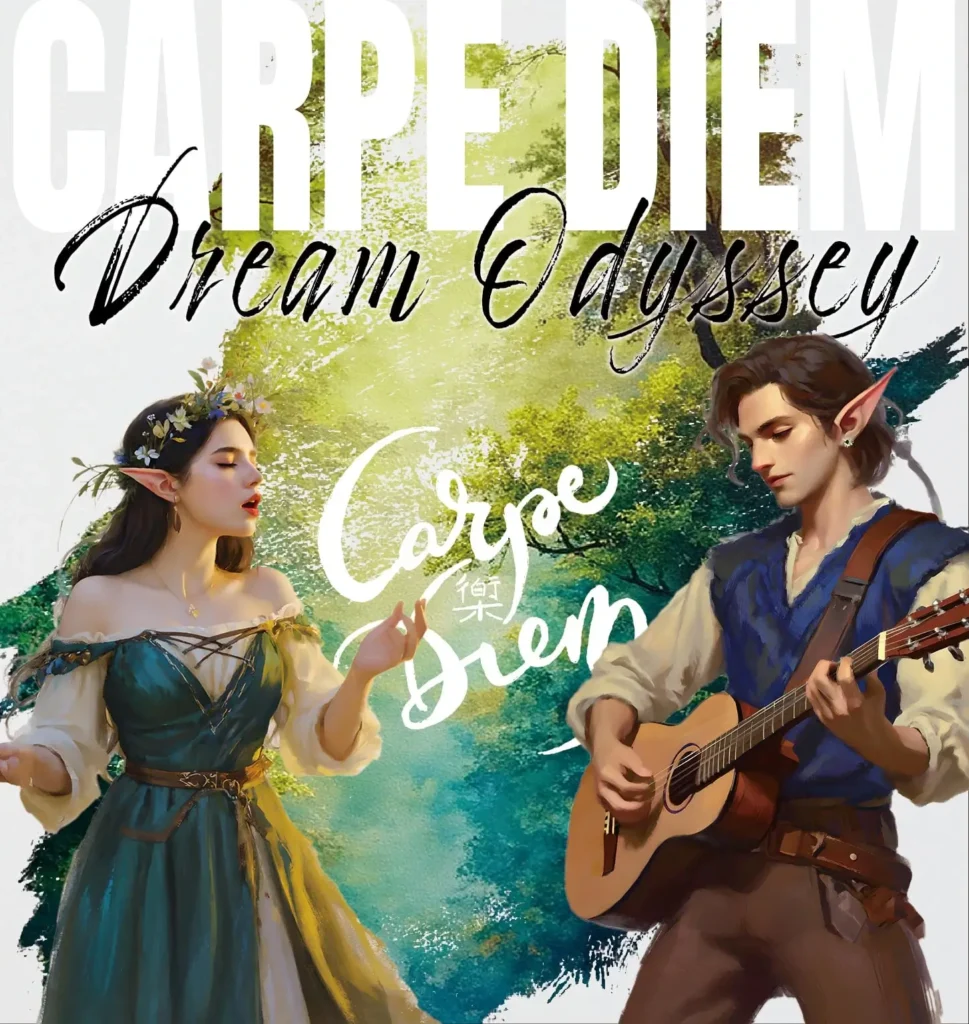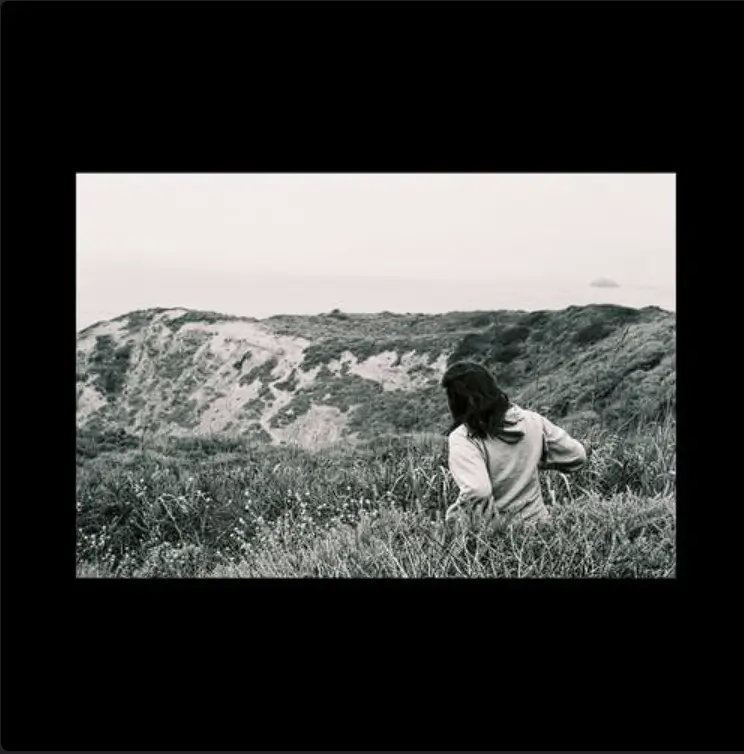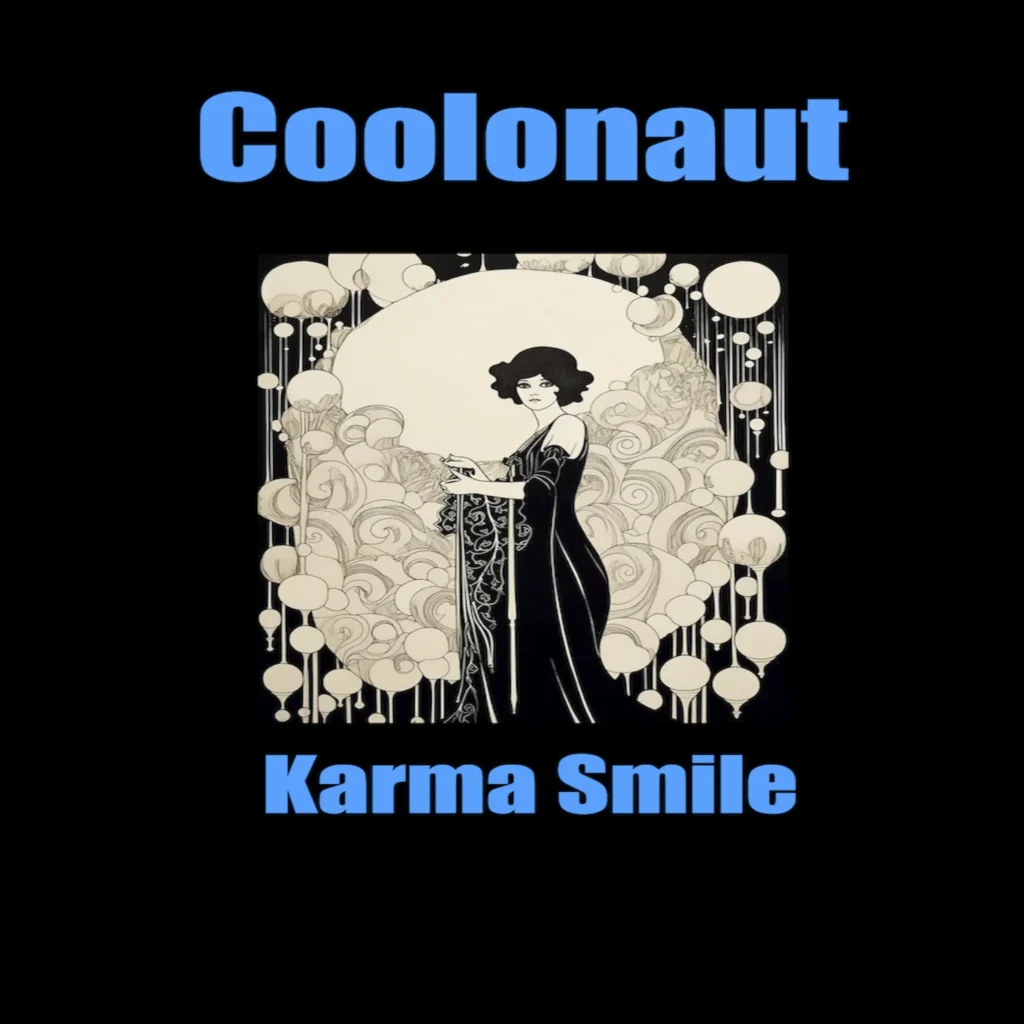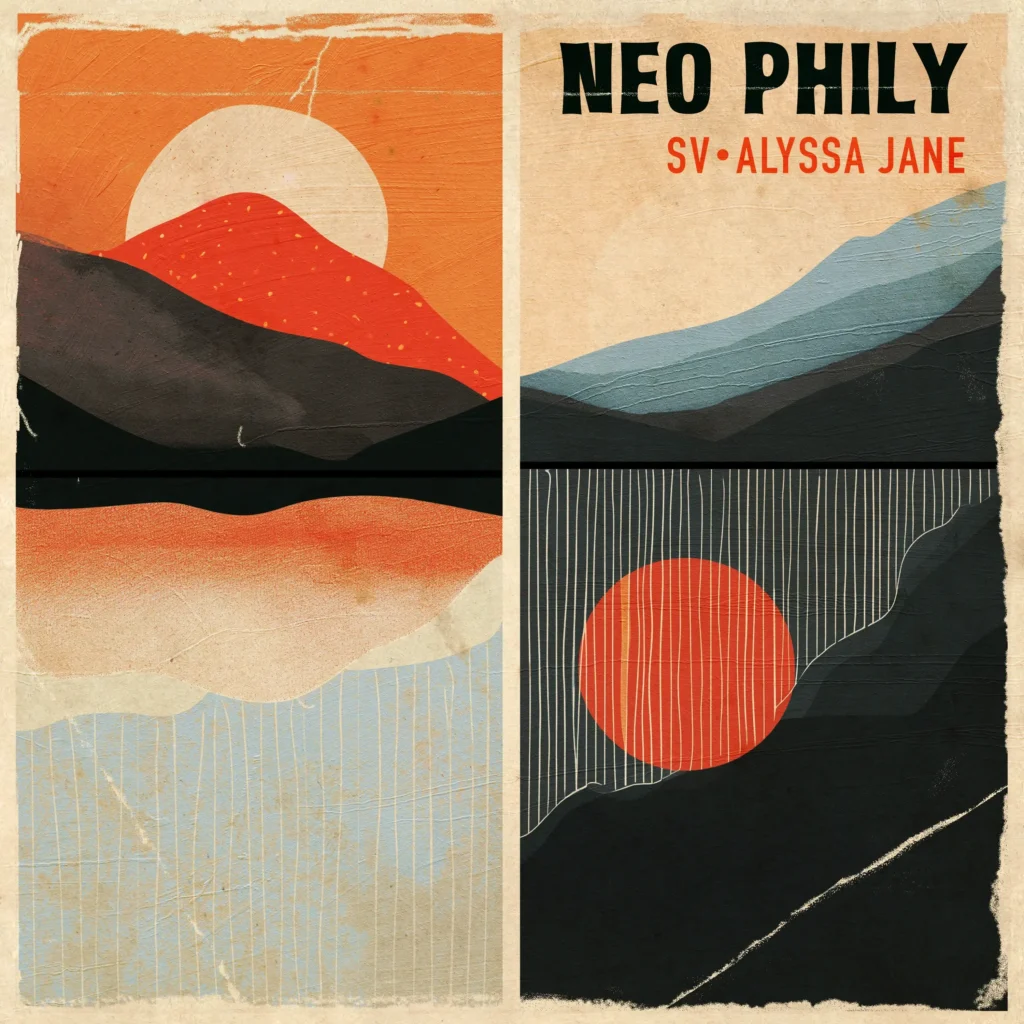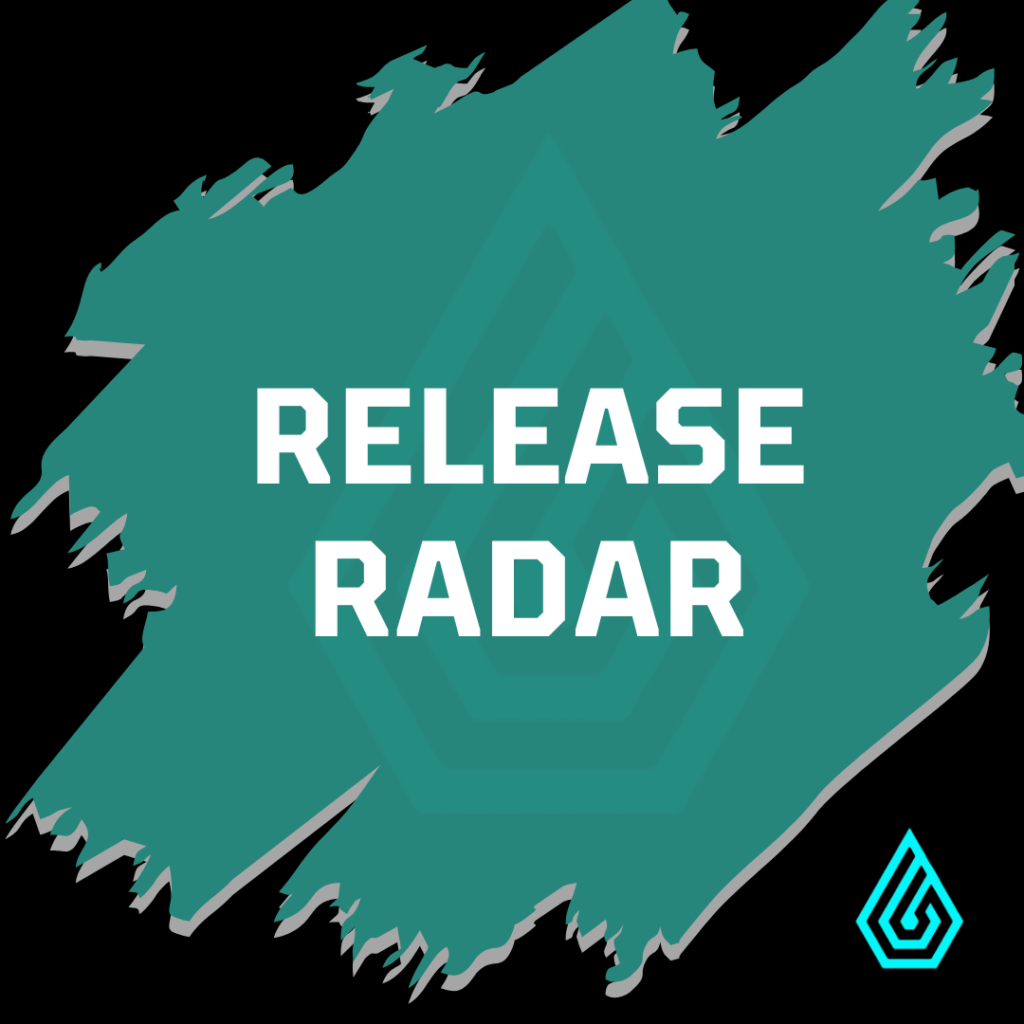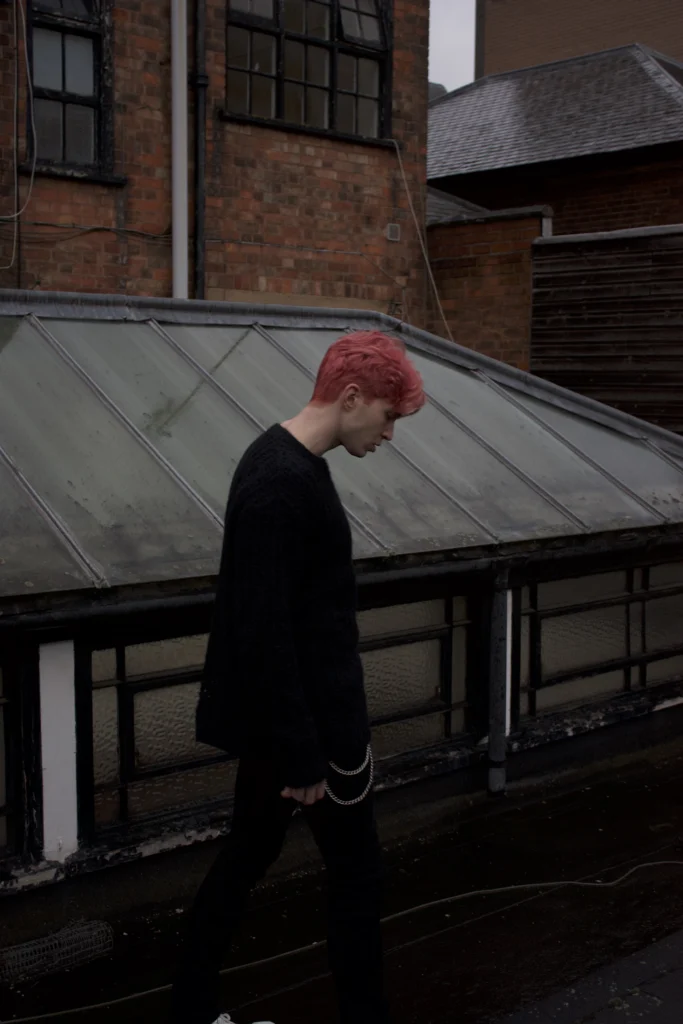Here’s the thing about albums called Dream Odyssey: you expect them to be either unbearably pretentious concept records with hour-long synth drones and a booklet of poetry stapled to the sleeve, or a perfectly fine indie project about “journeys” and “growth” where the word odyssey is doing some fairly heavy lifting. Carpe Diem, a duo who have been quietly at this for years, manage to thread the needle by actually making an album that feels like, well, an odyssey—but one scaled to the size of your daydreams rather than the fall of Troy. It’s not trying to solve the great crises of art, but it also isn’t content to be a Spotify-playlist filler. It wants you to believe in its sincerity, and annoyingly, it succeeds.
From the outset, the duo lean into eclecticism like it’s a dare. The arrangements hop between flute, handpans, delicate percussion, and a general refusal to let the songs settle into one neat genre box. Ada handles vocals, mostly in English, and writes with a frankness that skips the cryptic word salad popular in “serious” indie. Instead, you get lyrics that sound as if they were scrawled in a notebook at 3 a.m. and then stubbornly refused any further editing. Depending on your patience for unfiltered sincerity, this is either refreshing or a bit much, but that is what makes Dream Odyssey work.
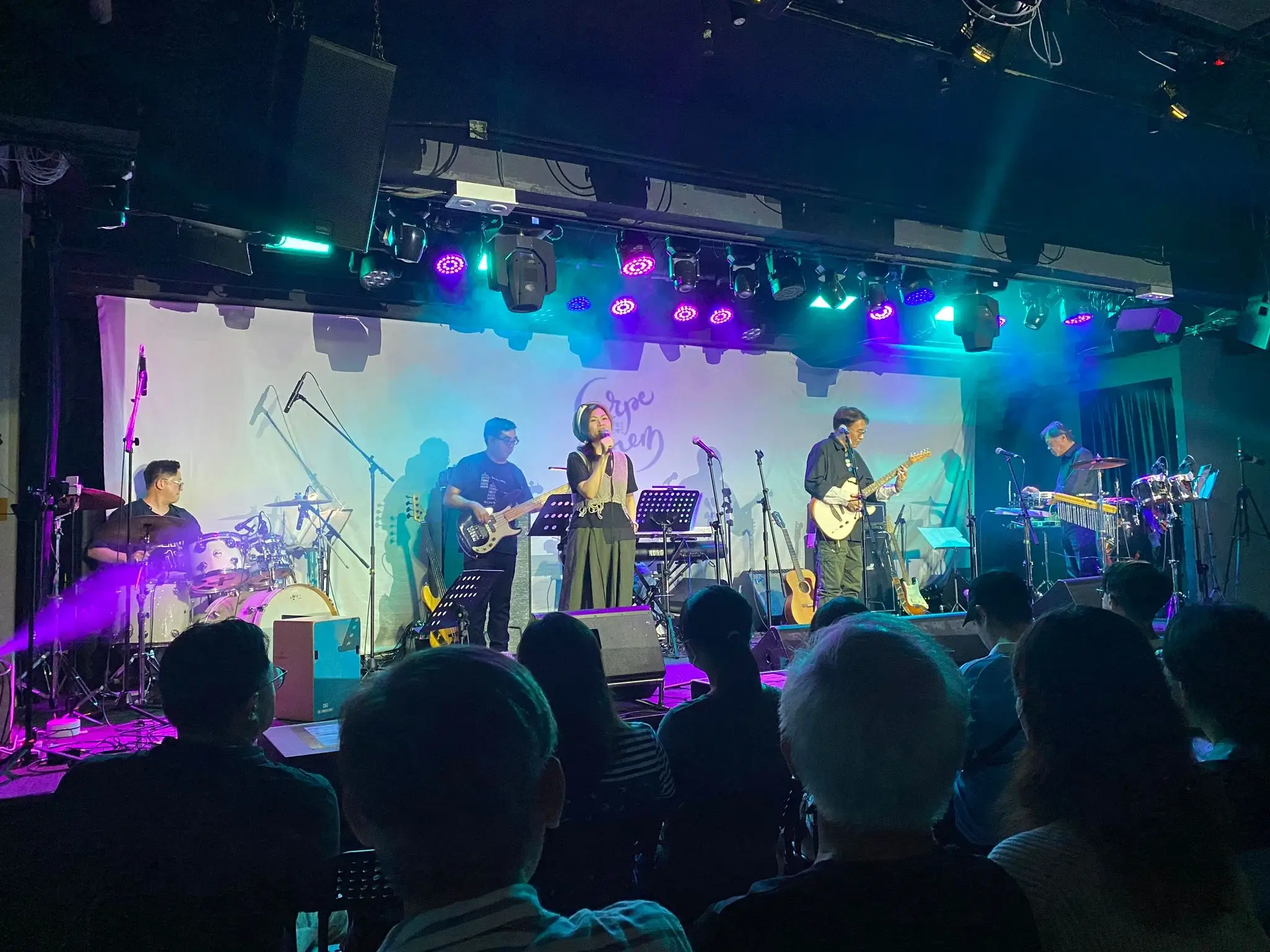
The opener, Pixie Dust, is precisely what you fear when you read the title: twinkly, whimsical, leaning on fairy metaphors like the band’s royalty payments depend on it. And yet it works. Imagine an early AURORA demo in which all the production sheen has been stripped away, leaving only wide-eyed belief in magic as a guiding principle. “Kindness is our own pixie fairy dust,” Ada sings, and while it reads like something on a primary school classroom poster, the delivery is so committed you find yourself leaning in. It’s not irony; it’s insistence.
Then comes Nature Odyssey, which is what happens when the duo decides to tackle environmental collapse via a song that sounds half like a sound bath and half like a TED Talk. Bird noises and environmental field recordings weave through the track, pushing the listener to imagine both the beauty of nature and the looming dread of its destruction. By the time Ada gets to the blunt declaration of “Global warming is happening / There’s no plan B ‘coz / There’s no planet B”, you’re either rolling your eyes or nodding grimly. Either way, you’re paying attention, and that’s the point.
Things turn more personal with Your Face, Your Fate, a track draped in summery guitar that could easily sit alongside early Yuna singles. The song prods at the absurd link people draw between appearance and destiny: “Does your face predict your fate?” It repeats the phrase like it’s trying to crack it open, but of course the answer never arrives. Instead, we’re left in the liminal space between self-image and societal judgment.
The real gem here is A Fork in the Road, which feels like it wandered in from a Men I Trust B-side collection. Dreamy bass, hushed percussion, and the kind of melodic ease that makes you forget the song is gently nudging you toward major life decisions. “Summer rain washed away / All my doubts of the day,” Ada sings, and it’s corny, yes, but it’s also weirdly moving. You get the sense the duo knows exactly how sentimental this is, and they’re doing it anyway because sometimes sincerity is more radical than irony.
Then there’s Twist in the Wind, which smashes together folk-era Chumbawamba earnestness with a bassline that wouldn’t be out of place on a grunge B-side. It’s jagged, unresolved, and occasionally sounds like it’s on the verge of collapse, which is entirely appropriate given the subject matter. The refrain of “I know it’s getting out of control / All I could do is letting go” isn’t profound on paper, but delivered against the restless arrangement it lands like a resigned shrug to the void. And sometimes, that’s the only kind of truth we’ve got.
Toward the record’s close, Ne Plus Ultra swerves into charming piano ballad territory, the sort of song that could soundtrack the quiet montage of a coming-of-age film. It’s direct, unadorned, and kind of a palette cleanser after the denser tracks. But the real curveball is Dream Big, Little Girl, which, depending on your tolerance, is either adorable or the final straw. Featuring a child’s voice and lyrics that could double as affirmations, it leans fully into what I can only describe as “minivan rock.” You know the type: songs that aren’t trying to be edgy, but are engineered for long car rides where the goal is to keep both parent and child vaguely uplifted. It’s less a closer than a gentle send-off, which, to be fair, is an oddly fitting end for an album so invested in sincerity.
Taken together, Dream Odyssey isn’t flawless. It occasionally drifts too far into sentimentality, and some lines sound like they should’ve stayed in the notebook, but that’s also the charm. It’s not pretending to be slick or detached. Instead, it doubles down on its earnestness, banking on the idea that sincerity, even when a little clumsy, still connects. At worst, you’ll feel like a visitor at the Evermore theme park. At its best, Carpe Diem’s Dream Odyssey transports you to a great big adventure.
Follow Carpe Diem
Promoted Content
About the Author
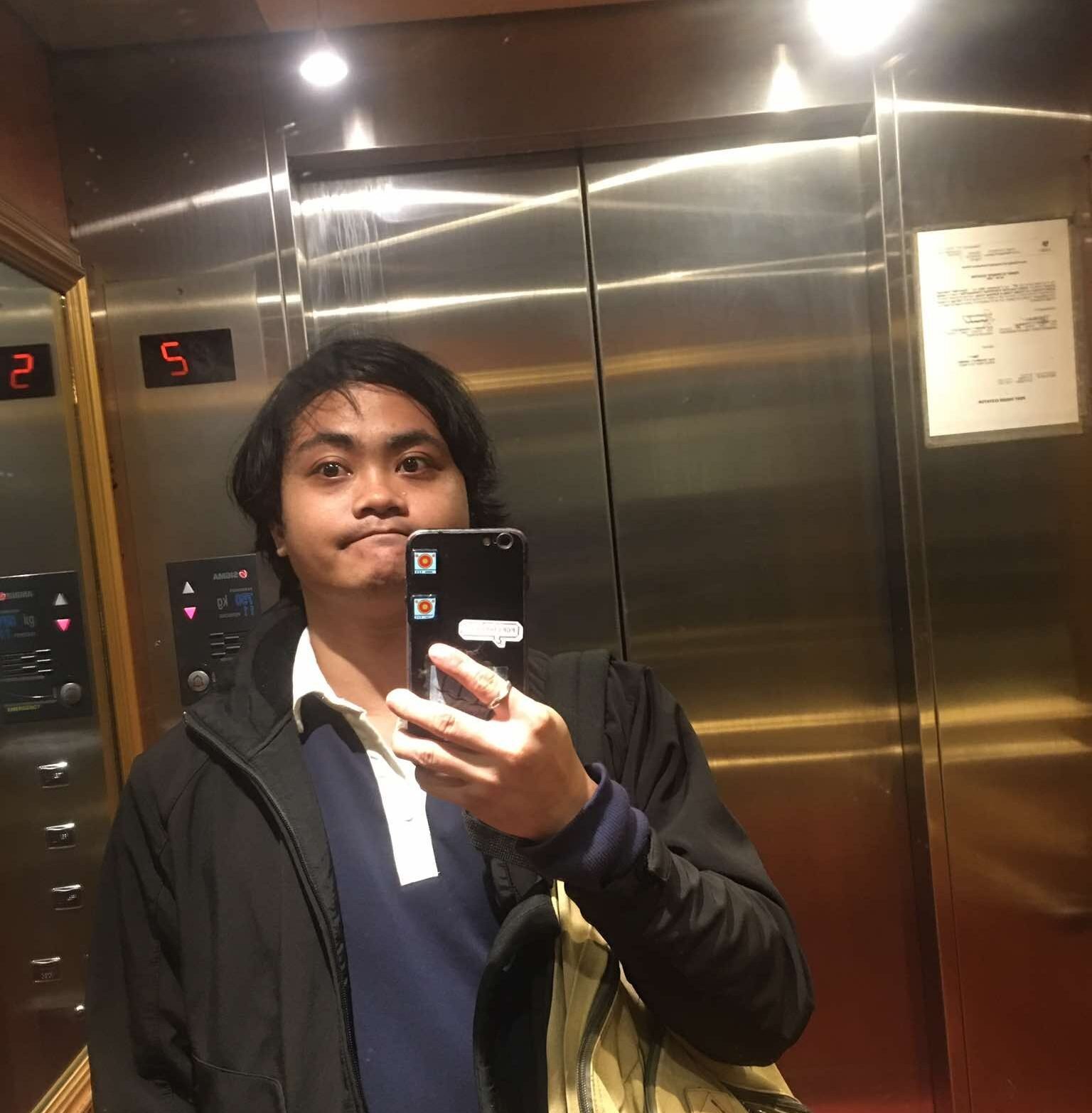
A tenured media critic known working as a ghost writer, freelance critic for publications in the US and former lead writer of Atop The Treehouse. Reviews music, film and TV shows for media aggregators.
